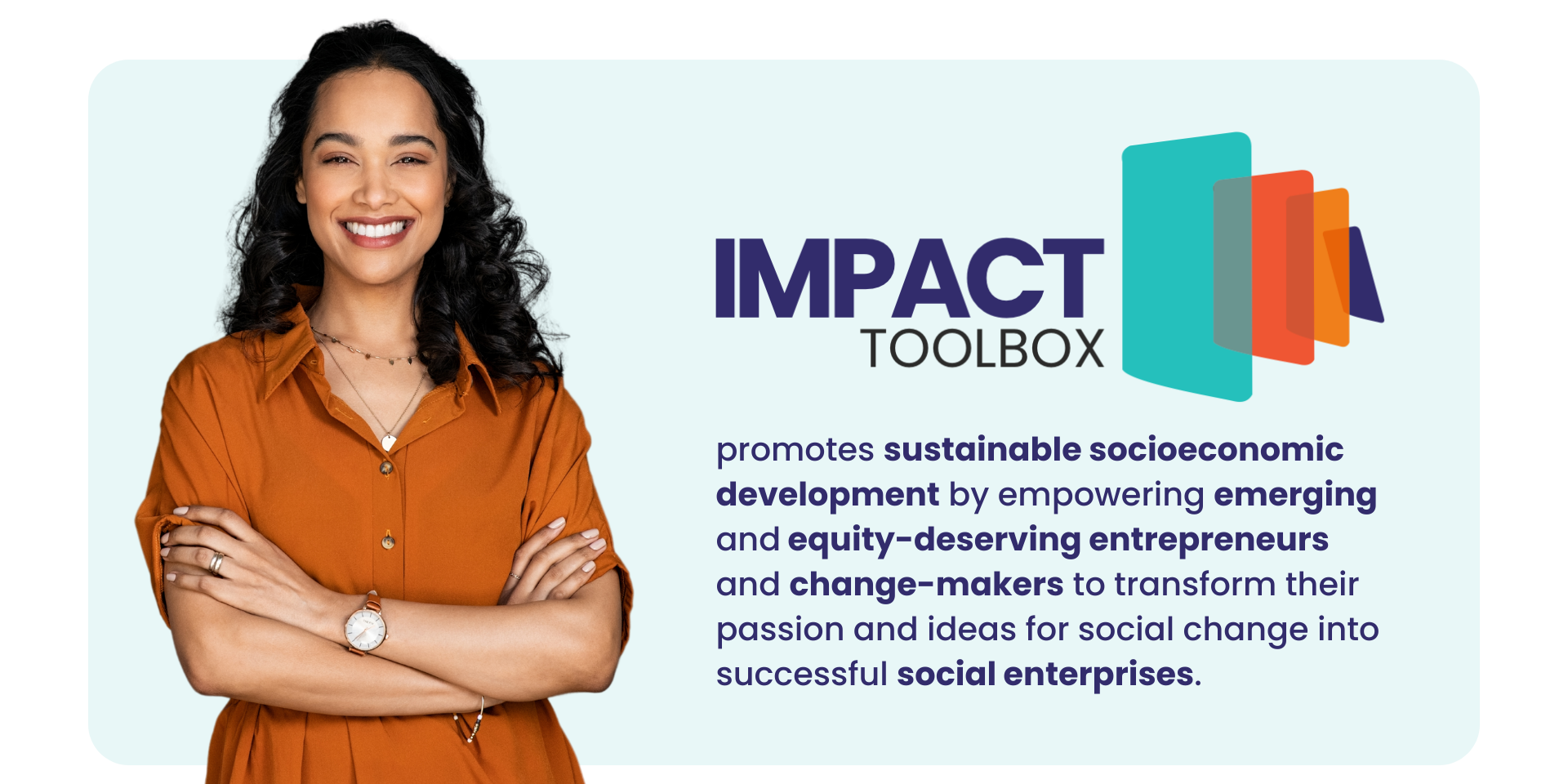
Social enterprises also employed over 9,000 individuals and paid $141.3 million in wages. This underscores the transformative power of social enterprises in driving economic development.
However, research, including further insights from Buy Social Canada and Start-Up Canada’s 2020 ESDC Social Impact Report, indicates that many aspiring social entrepreneurs face hurdles such as insufficient business capacity, funding challenges, and a lack of mentorship and strategic planning.

What we do
Impact Toolbox provides a platform for social entrepreneurship training and support for social enterprise development. Regardless of your background and location, you can gain the knowledge, acquire skills, and access tools needed to develop and manage revenue-generating social purpose organizations. These organizations have the potential to create employment opportunities and address critical socioeconomic issues in their communities.
How we do it

Mindset Change: We help adopt a regenerative culture of money and a mindset focused on generating income to enable deeper and broader social and environmental impacts.
Skillset Development: Participants gain in-demand skills in social entrepreneurship, including impact management, measurement, and business modelling.
Toolset Access: We provide lifetime access to essential tools such as the problem validation rubric, program contribution matrix, theory of change canvas, measurement framework, competitive stack map, and brand guidelines.
Our theory of change
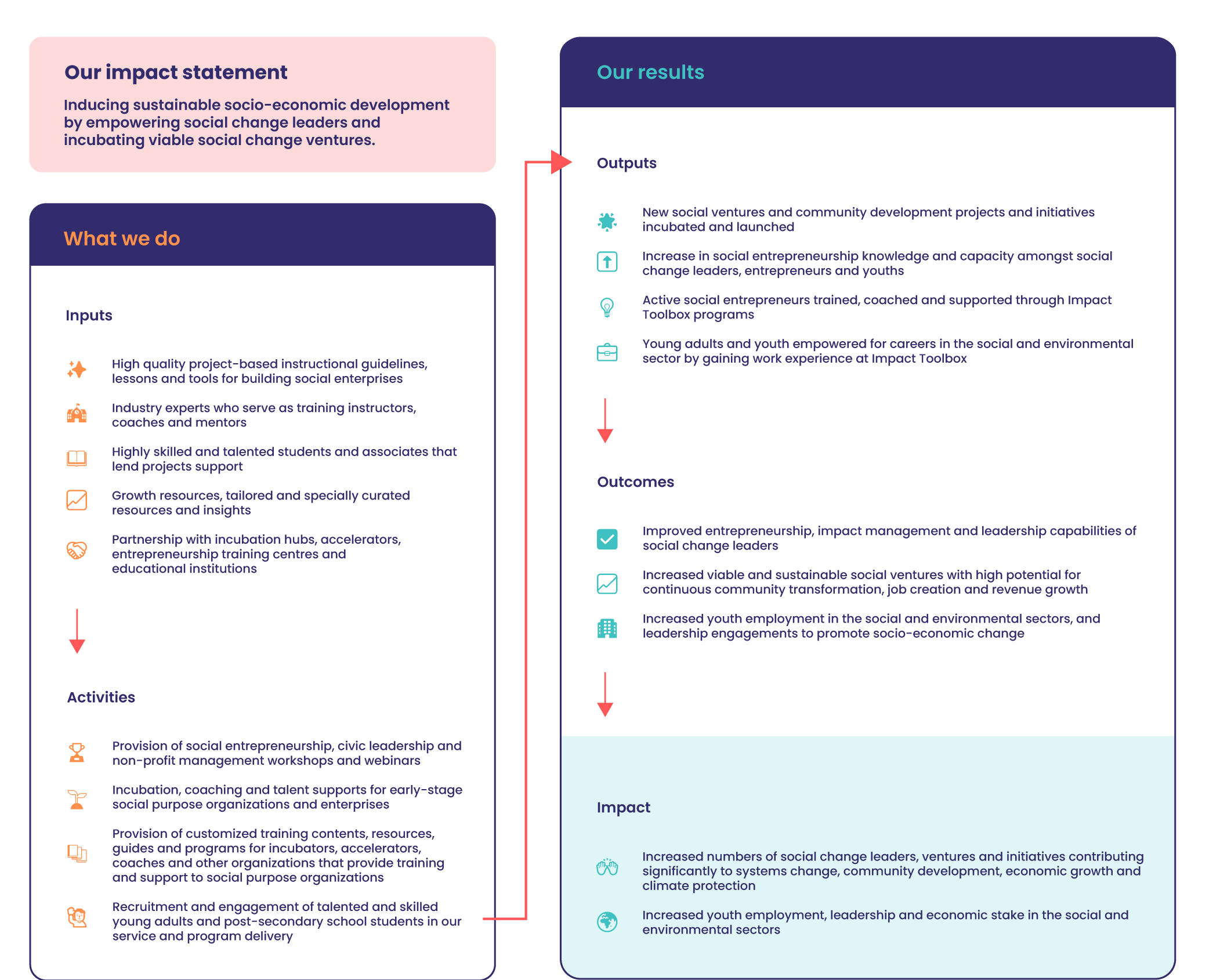
Our alignment with the United Nation’s 2030 Agenda and our aspirations
Our commitment to the United Nations’ 2030 Agenda is deeply embedded in our work at Impact Toolbox.
We make a direct contribution to the achievement of Goal 4, specifically targets 4.3 (ensuring equal access to affordable and quality technical, vocational, and tertiary education), 4.4 (increasing the number of people with relevant skills for financial success), and 4.7 (ensuring all learners acquire knowledge and skills needed to promote sustainable development).
Additionally, our efforts indirectly support goals 1 (No Poverty), 2 (Zero Hunger), 3 (Good Health and Well-being), 10 (Reduced Inequalities), 13 (Climate Action), and particularly goal 8 (Decent Work and Economic Growth).
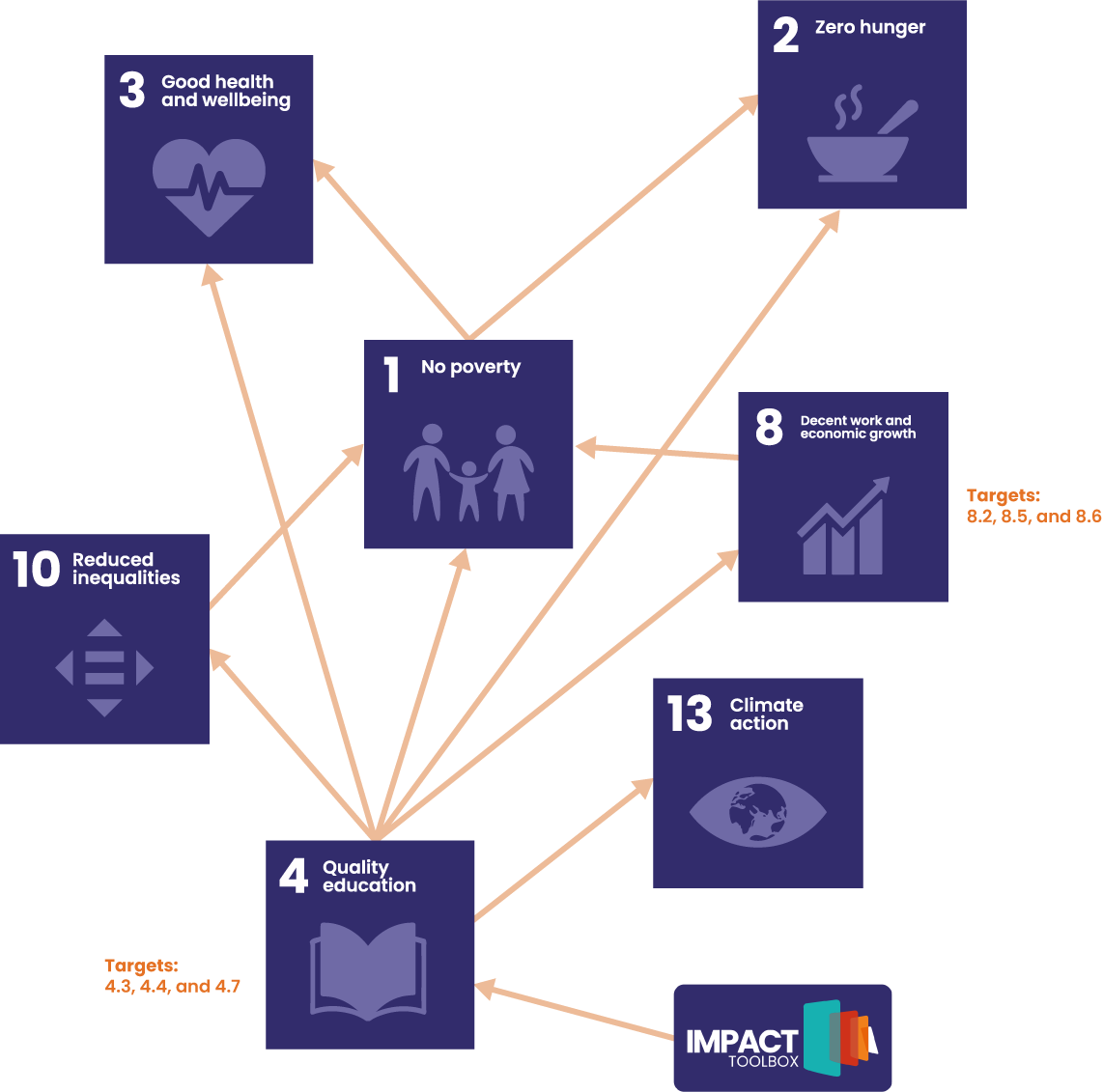
By 2030, we aspire to:
- Train 10,000 people with the skills for sustainable social change through leadership and entrepreneurship training.
- Help start 500 social enterprises to address community issues, create jobs, and generate revenue.
- Engage 200 post-secondary students and new graduates in carrying out our activities, providing them with work experience and leadership and social entrepreneurship skills.
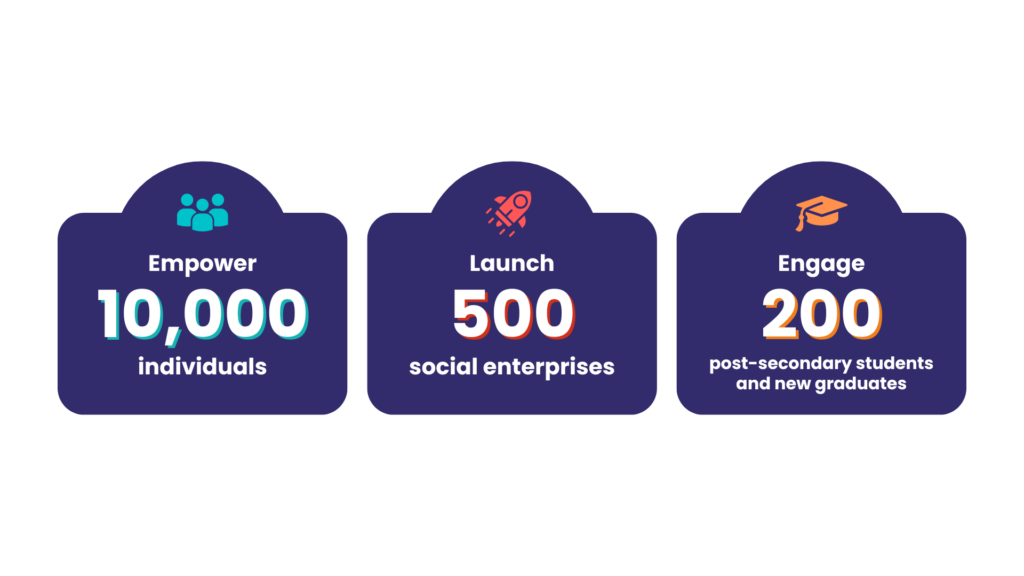
How do we measure impact?
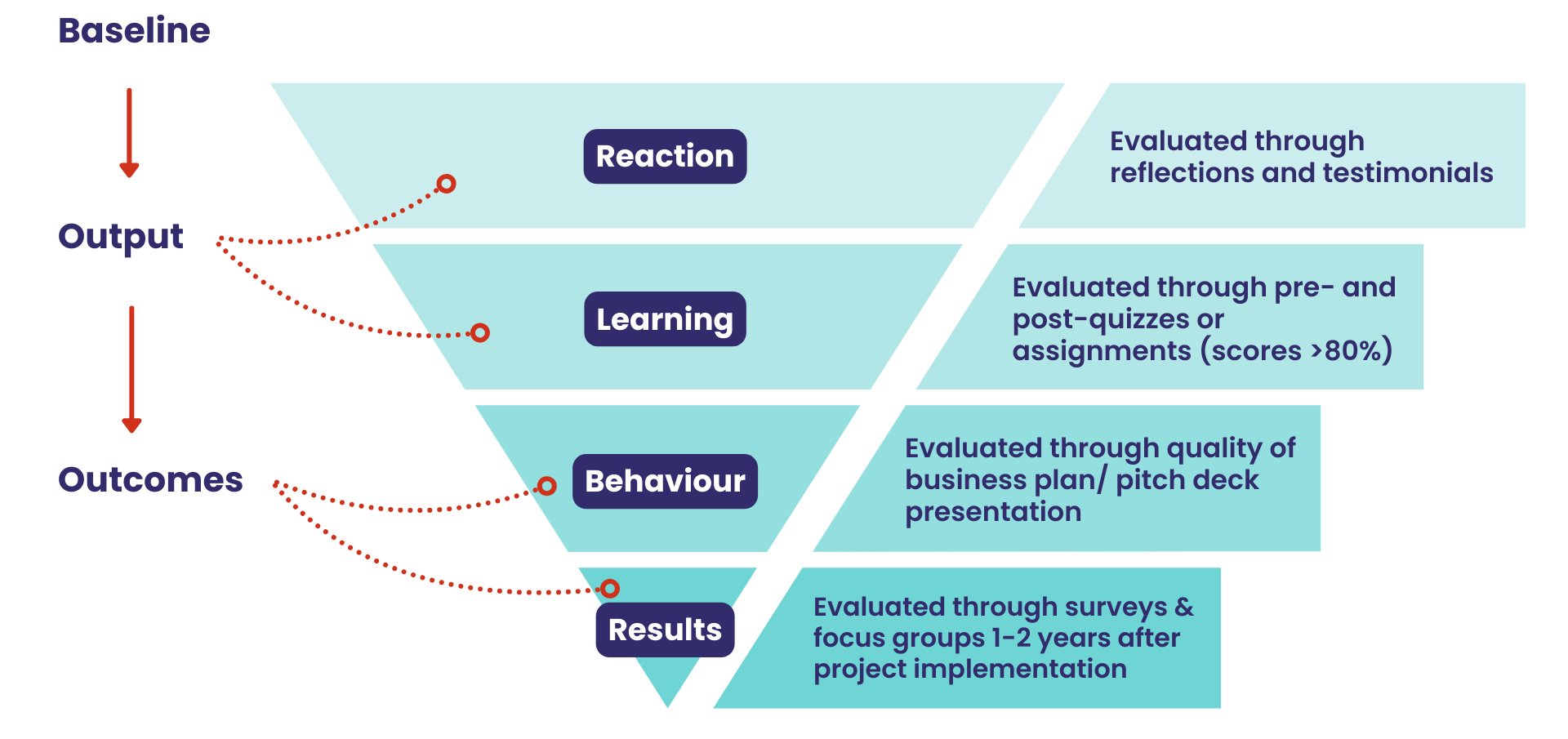
Baseline: Before each program, participants’ level of exposure to core training topics (especially those related to our outputs and outcomes as outlined in our theory of change above), current state of ideas, challenges previously faced, and program expectations will be recorded through an online baseline survey and a pre-assessment test embedded in the application forms and sometimes before starting a course. Data collected is later compared with post-assessments to measure learning and determine the program’s effectiveness.
We evaluate the efficiency and effectiveness of our programs using Donald Kirkpatrick’s four-level evaluation framework. We monitor reactions and learning and measure behavioural changes and results. We monitor reactions through reflections and testimonials, learning through pre- and post-quizzes, assignments, and learning by doing exercises, with success being post-assessment scores > 80%. We also monitor behavioural change through the quality of strategy documents developed, such as social enterprise business plan presentations and showcase events.
Output: During our capacity-building programs, reactions and learning are assessed through daily reflections in workshop sessions, immediate online post-evaluation surveys, and attendance.
Reactions help us assess participants’ experience in the program and measure their satisfaction with the training sessions. We also track attendance with 80% attendance in all sessions, indicating successful participation and completion of the program. Under learning, we measure if participants have developed social entrepreneurship skills and acquired knowledge and skills they need to contribute meaningfully to sustainable development. Learning occurs when one or more of the following occurs: attitudes are changed, and knowledge and skills regarding above core competencies (leadership, problem identification and solving, ideation, objective decision making, business management, impact management, customer development and financial analysis) are improved. We measure learning using testimonials, course reviews, and metrics, such as online course completion rates and end-of-training quizzes or assignment scores. An aggregate score of more than 80% indicates successful learning.
Outcomes: After the program concludes, participants’ actions and project implementation plans will be evaluated. This data will serve as the basis for measuring immediate program outcomes. We also conduct end-of-program showcases to assess the extent of behavioural change and the use of knowledge and skills.
For example, each participant in our incubation program is expected to develop a pitch deck. The quality of the pitch deck helps to understand the level of participants’ comprehension of core concepts. Their participation in the final showcase, where they present their ideas to our community, helps assess the extent to which their business confidence and strategic clarity have improved, the level of skills developed in delivering their business ideas, and their preparedness for the market and investors. A grade of 80% by an expert reviewer is considered success. We also collect more data on early results they might be experiencing through online surveys, short phone calls, chats, and polls in our online community.
Finally, we collect results from participants one to two years after they implement their action or project plans. We want to understand how participants have internalized and continued to use the lessons learned and skills acquired. We want to know if they have launched and continue to implement their social enterprise or community development initiatives. We also track factors indicating resilience and economic contribution, including the number of other people employed or engaged, community economic contribution or investments, community members served, and profit or financial savings. This will be conducted through an online survey.
Outcomes will be continuously evaluated by the number of beneficiaries, communities reached, jobs created, and revenue generated by the non-profit or their social enterprises. Data is collected through surveys, short phone calls, chats, and polls in our online community.
How do we fund these efforts?
Impact Toolbox is a Canadian national charity that strives to be a financially sustainable mission-first organization by monetizing some mission-oriented activities to generate revenue to sustain our core programs, which we provide at no cost. 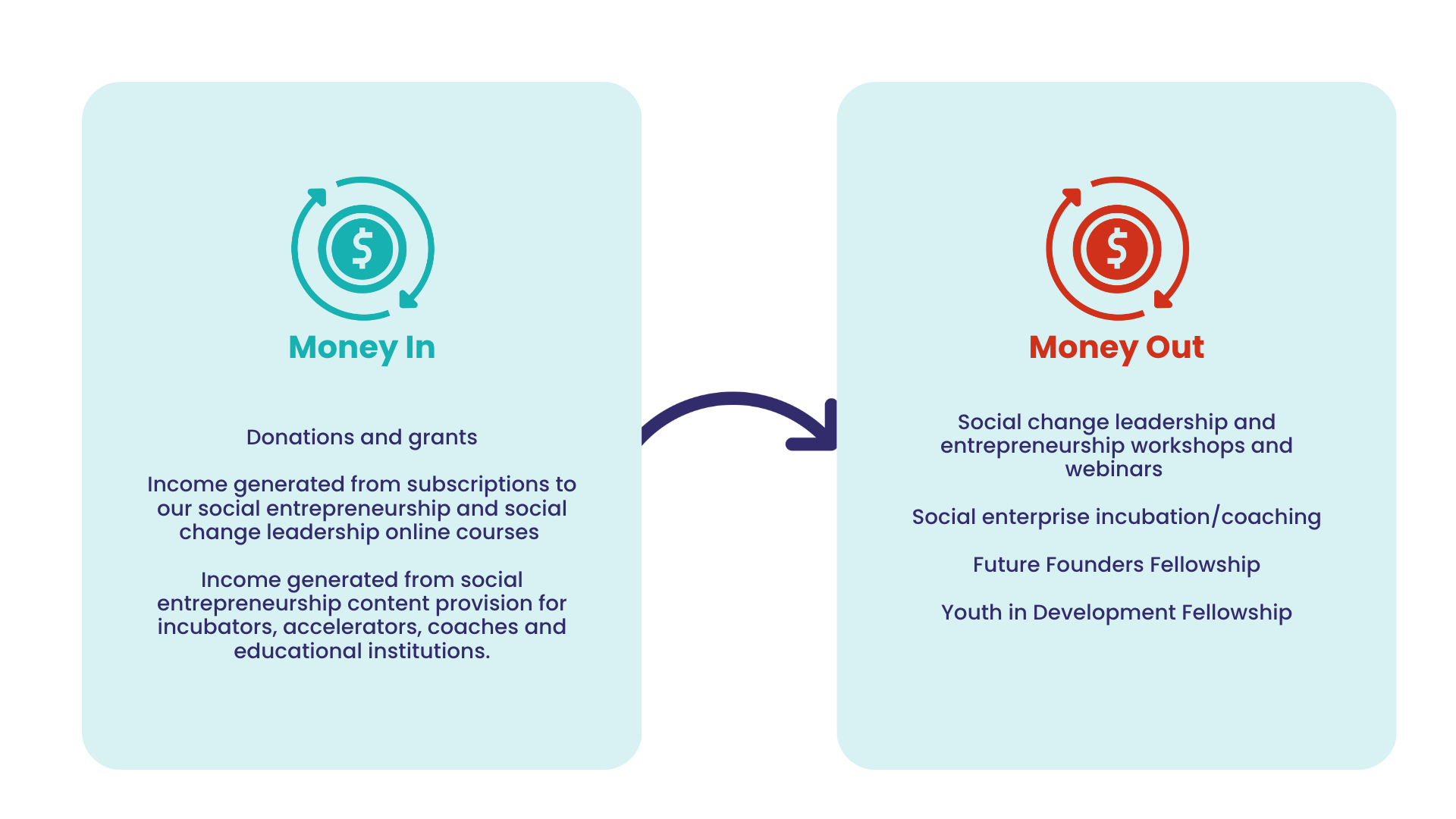
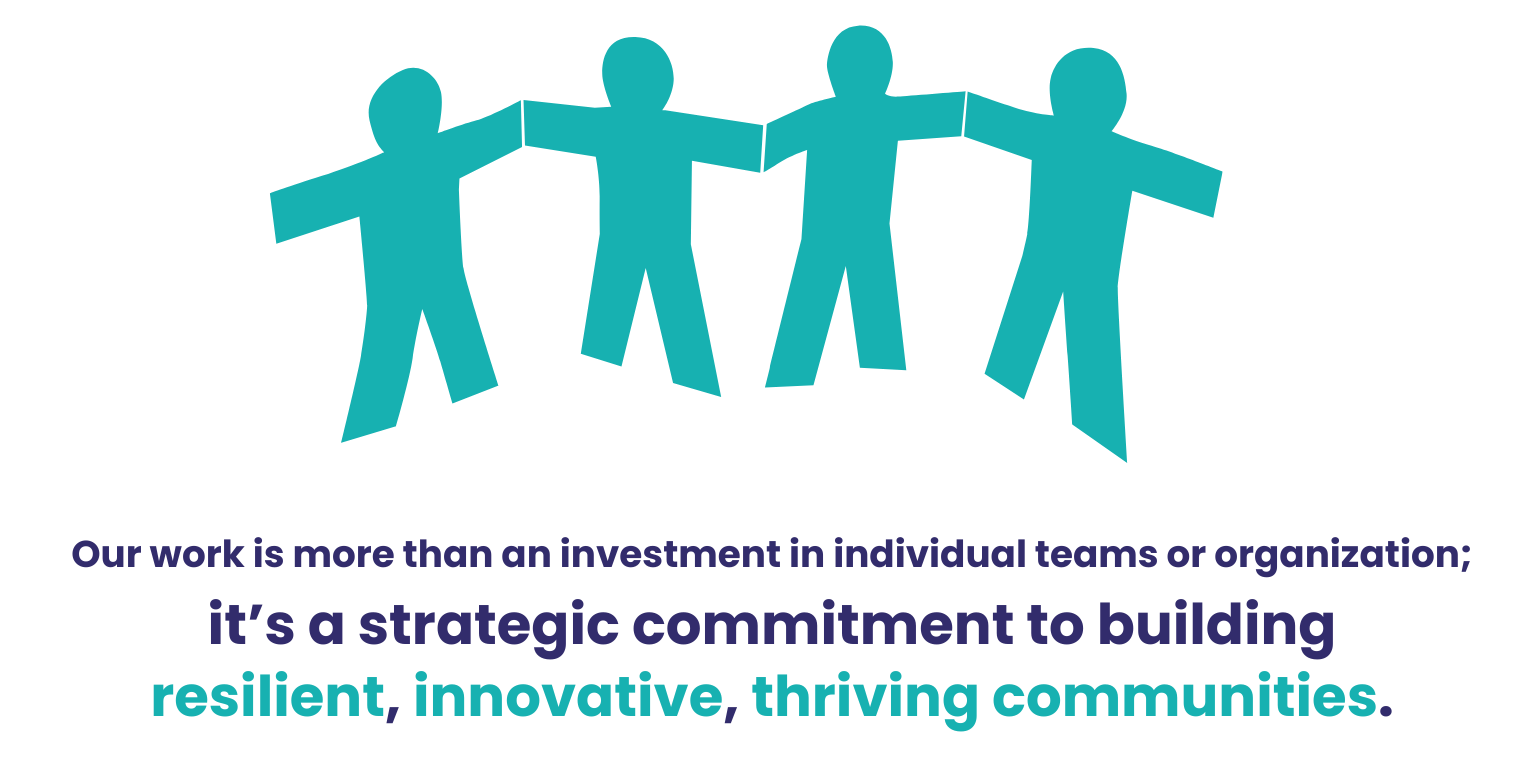
What we are seeing in communities where we work
Impact Toolbox’s approach yields transformative benefits for communities by promoting social entrepreneurship and youth leadership. Key outputs include the launch of innovative social ventures and enhancing social entrepreneurship knowledge among young leaders. The outcomes are robust: improved entrepreneurial and leadership capabilities, establishing of sustainable social enterprises with high-impact potential, and increased youth employment in pivotal sectors.
The overarching impact of our initiative is profound. We catalyze systemic change, drive community development, stimulate economic growth, and champion climate protection. Crucially, we empower youth to assume significant roles and leadership in shaping their communities’ socio-economic and environmental futures. This project is more than an investment in individual ventures; it’s a strategic commitment to building resilient, innovative, thriving communities.
